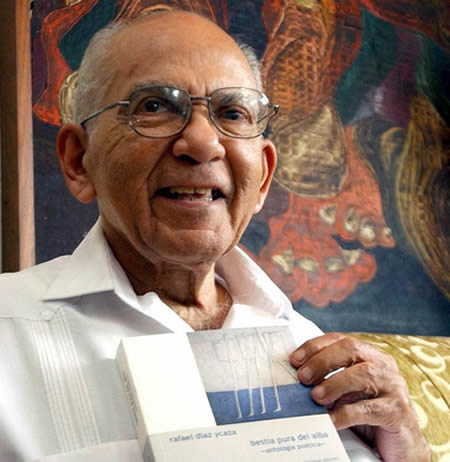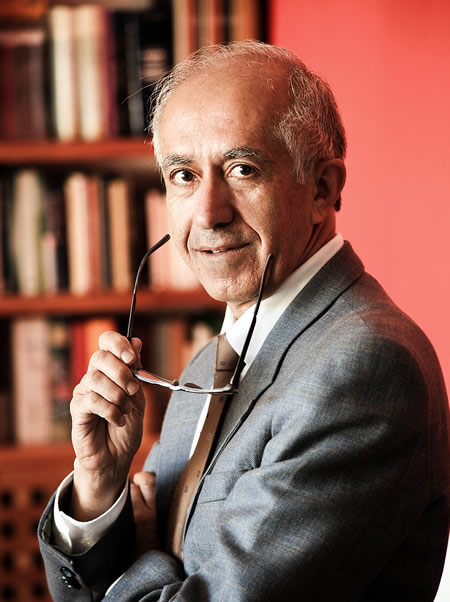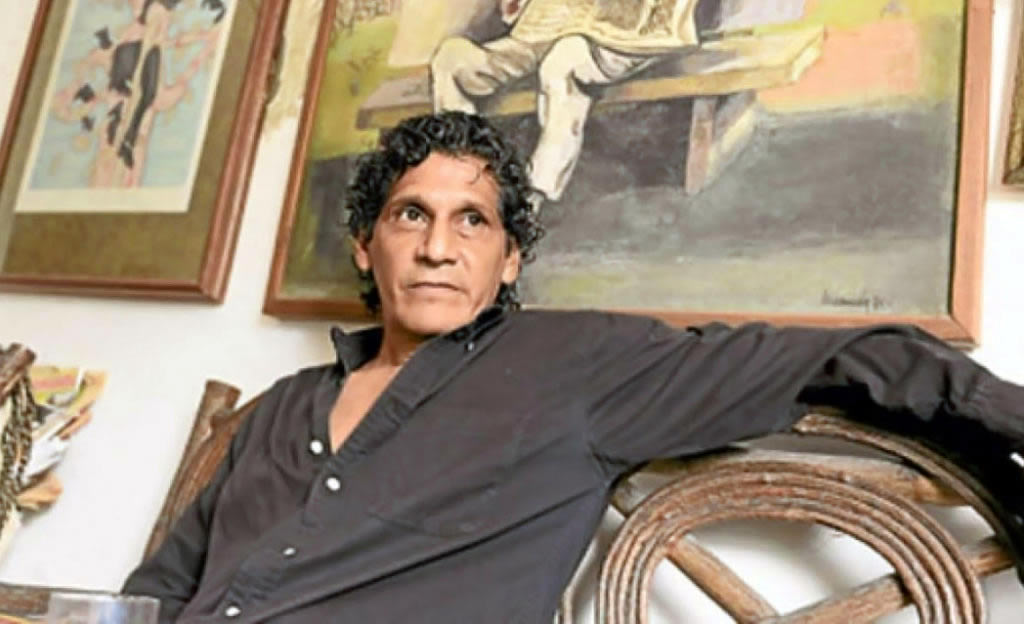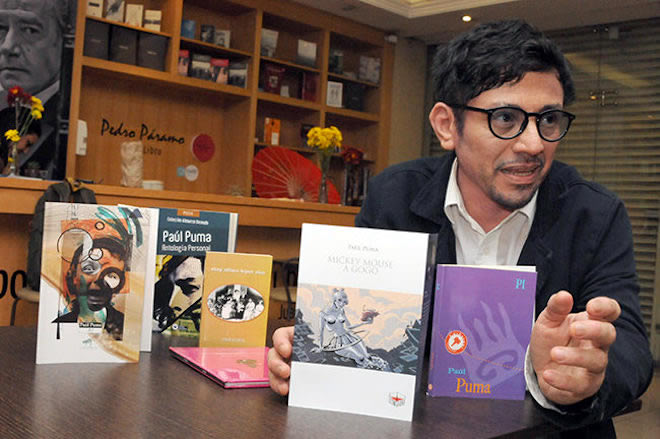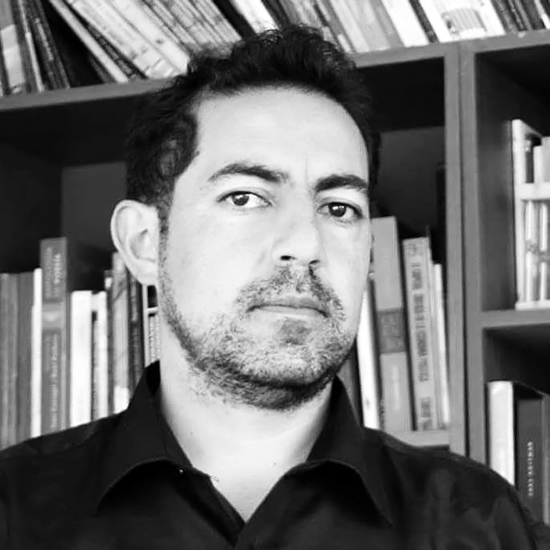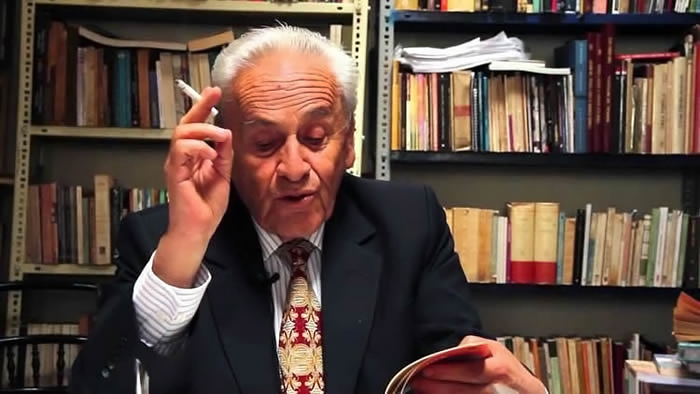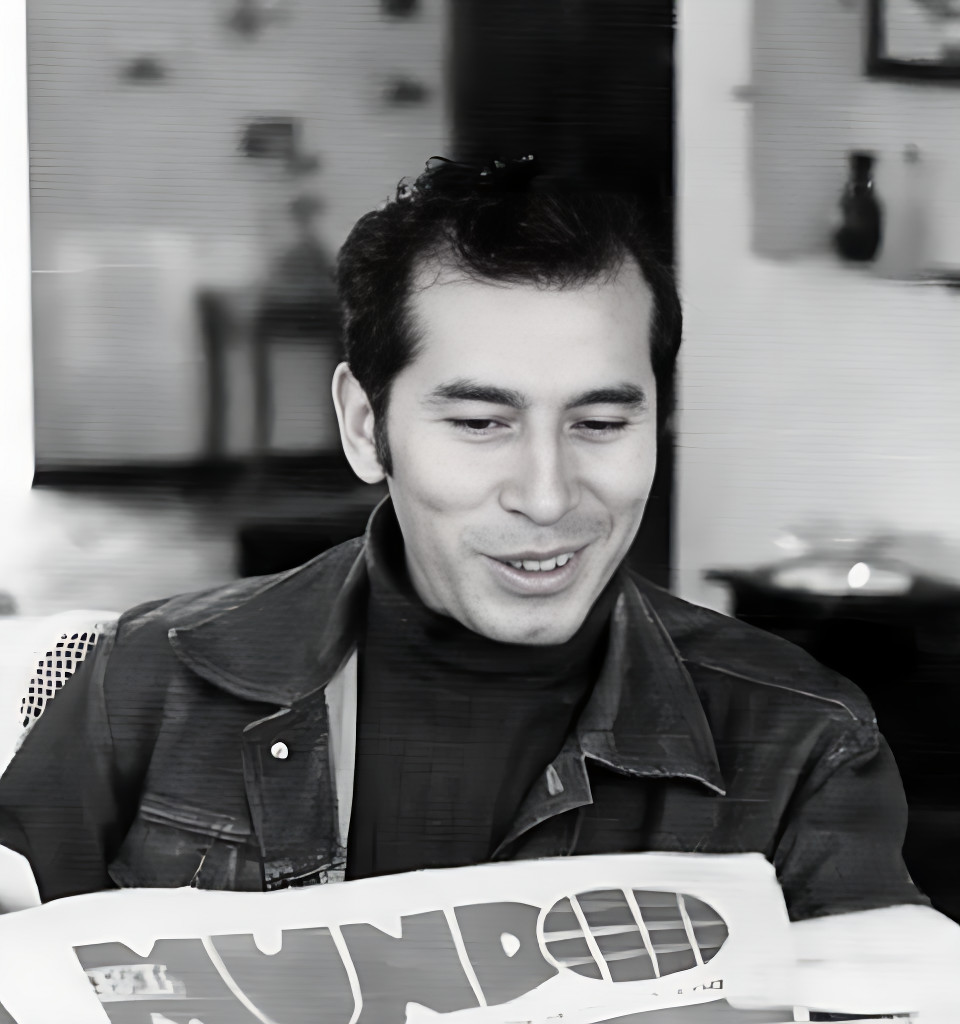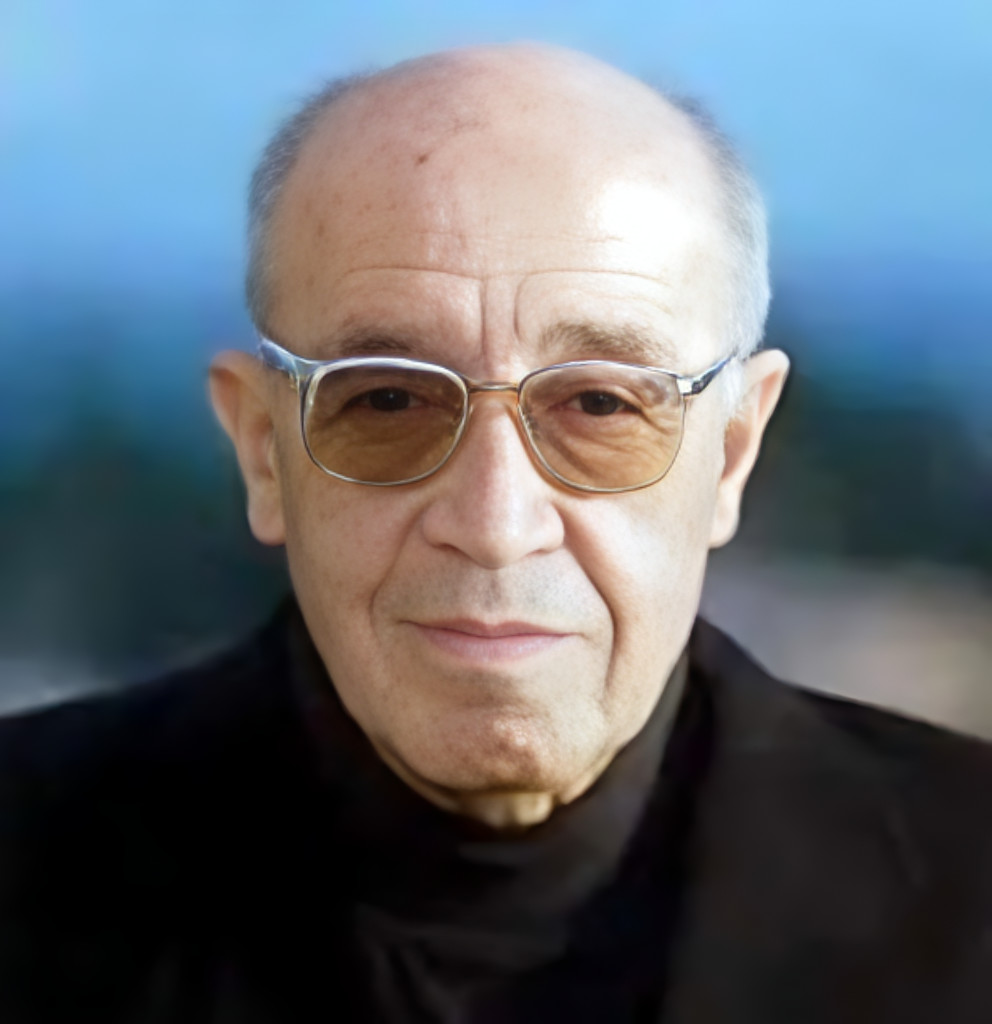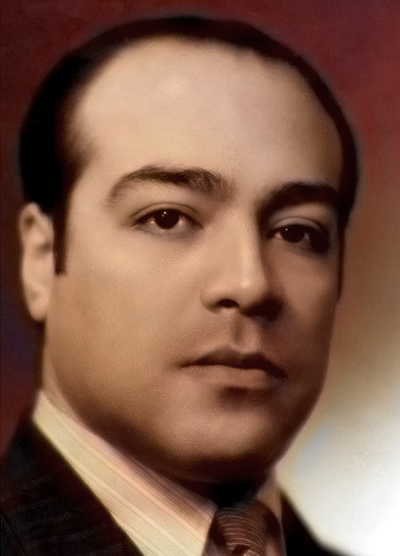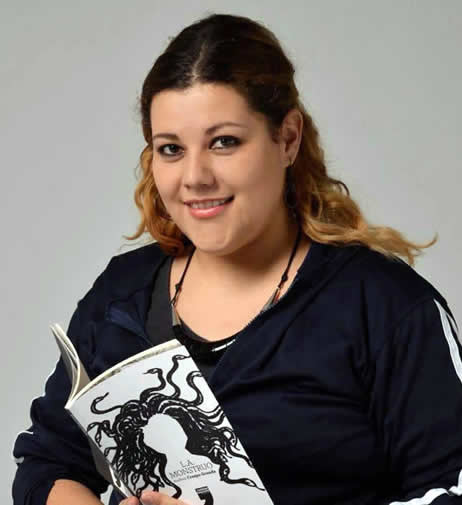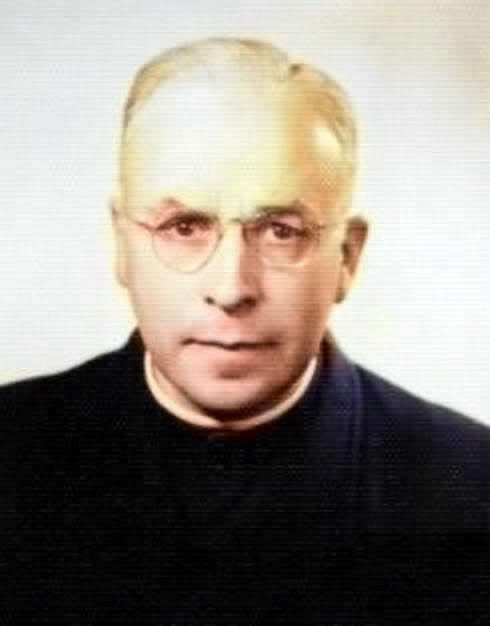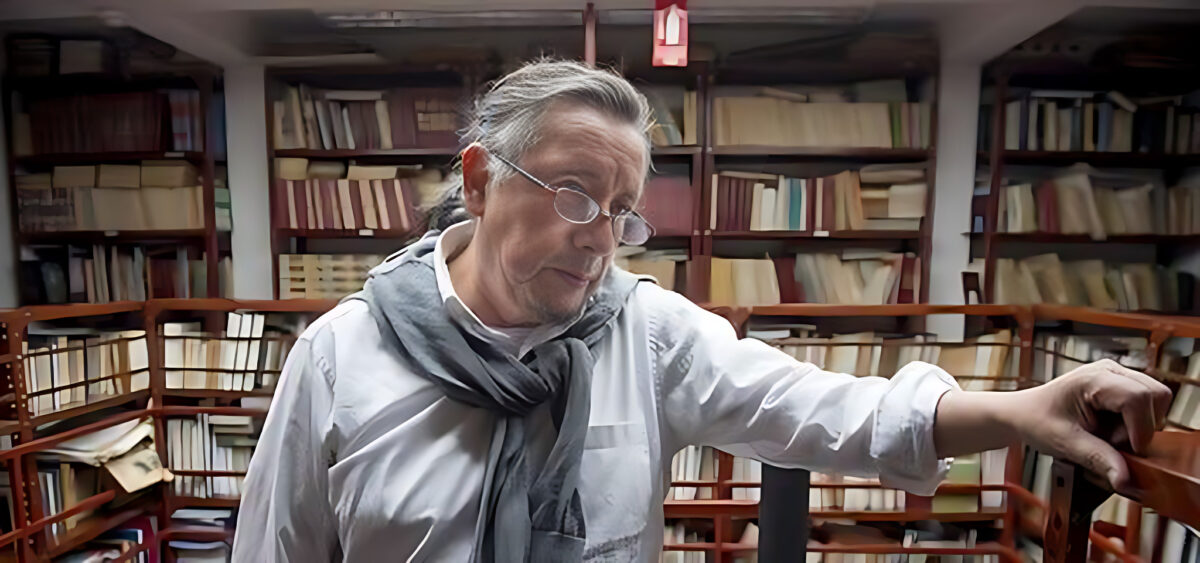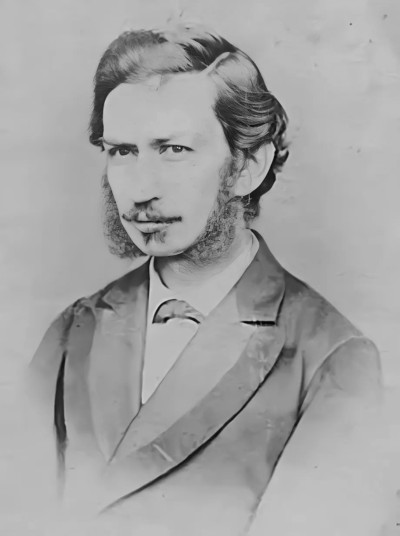Rafael Díaz Ycaza (Guayaquil, October 28, 1925 – August 28, 2013) was a poet, novelist, short story writer and columnist. His notable works include poetry collections such as “Statues at Sea” (1946), “Botella al Mar” (1964), and “Zona Prohibida” (1972), each resonating with his lyrical style and profound imagery. Among his novels are “Los Rostros del Miedo” (1962) and “Los Prisioneros de la Noche” (1967). Beyond his literary achievements, Díaz Ycaza was honored with various awards and recognitions, including the Aurelio Espinosa Pólit Prize (1985)” and the “José de la Cuadra National Short Story Prize (1967). In 2011, Ecuador’s President Rafael Correa awarded Díaz with the the nation’s highest literary distinction, the Eugenio Espejo National Prize, for his lifetime of literary work.
Continue reading “Rafael Díaz Ycaza”“His book [Zona prohibida] was like a bible for the youth of my generation, especially for its social poetry.”
Sonia Manzano (Poet) – quoted in “Rafael Díaz Ycaza, el hombre que dedica su vida a las letras,” El UNIVERSO, Sept 2, 2011.

